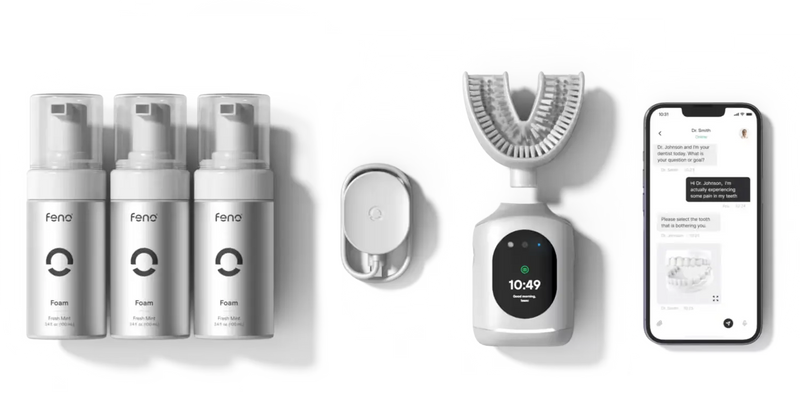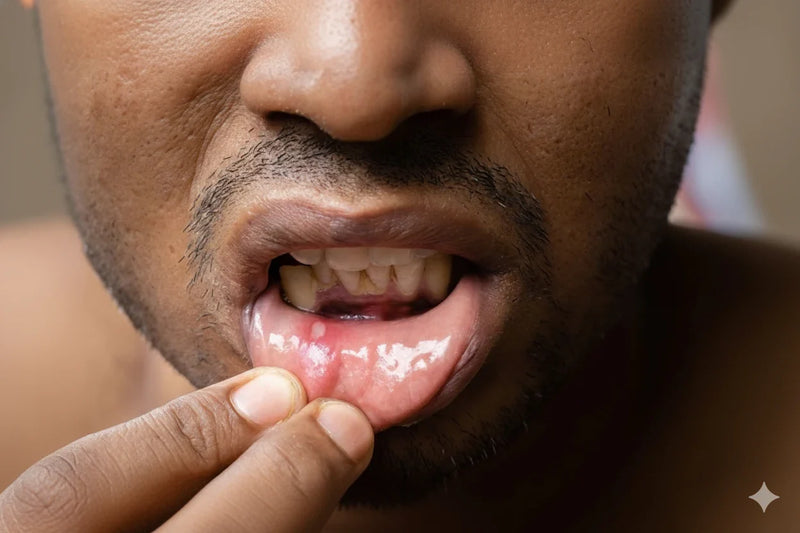
Oral Health & Hormonal Changes: Why Your Gums Respond to Shifts in the Body
Essential Takeaways
- Hormonal shifts during puberty, pregnancy, menopause, and contraceptive use heighten gum inflammation and disease risk. Extra oral care and frequent dental visits during these stages protect long-term oral health.
Hormonal changes are a natural part of life, but their impact extends far beyond what most people realize, including directly to your gums and teeth. Research confirms that fluctuations in estrogen and progesterone can dramatically alter gum tissue health, oral bacterial composition, and your risk of developing periodontal disease.
(Cureus, 2025)
Why Hormones Matter for Your Mouth
Your gums are hormone-sensitive tissues. When estrogen and progesterone levels shift during puberty, pregnancy, menstruation, or menopause, these hormones influence blood flow to gum tissue, modify inflammatory responses, and change the balance of bacteria in your mouth. This biological connection means that periods of hormonal transition require extra attention to oral health.
What the Research Shows
Pregnancy Gingivitis Affects Most Expectant Mothers
Studies show that 60–75% of pregnant women experience pregnancy gingivitis, characterized by red, swollen, and bleeding gums. This occurs because elevated progesterone increases blood flow to gums and alters immune responses, making gum tissue more reactive to plaque bacteria. Left untreated, pregnancy gingivitis can progress to more serious periodontal disease, which has been linked to adverse pregnancy outcomes in some research.
Menopause Brings Multiple Oral Health Challenges
(International Journal of Dentistry, 2022)
The decline in estrogen during menopause contributes to several oral health concerns:
- Dry mouth (xerostomia): Reduced salivary flow increases cavity risk and discomfort
- Altered taste perception: Changes in taste buds affect food enjoyment and nutrition
- Jaw bone density loss: Lower estrogen levels reduce bone mineral density in the jaw, increasing susceptibility to periodontal bone loss and tooth mobility
Peer-reviewed studies in periodontal journals confirm that postmenopausal women face higher rates of gum recession and tooth loss compared to premenopausal women of similar oral hygiene habits.
Hormonal Contraceptives Influence Gum Inflammation
Research demonstrates that oral contraceptive use can increase gum inflammation and bleeding tendency. While modern low-dose contraceptive formulations have less pronounced effects than older high-dose versions, dental professionals should still be informed about contraceptive use during oral health assessments. Multiple studies show that the type and duration of hormonal contraception can impact the degree of gum inflammation experienced.
Puberty and Menstrual Cycles
Hormonal surges during puberty can cause temporary gum sensitivity and swelling. Some individuals also experience cyclical gum changes during their menstrual cycle, with increased inflammation in the days before menstruation begins.
(American Academy of Periodontology)
Protective Steps
-
Daily Oral Hygiene
- Brush twice daily, using gentle circular motions on the gumline
- Floss at least once daily to remove plaque between teeth where gum inflammation often starts
- Consider antimicrobial mouth rinses if recommended by your dentist during high-risk periods
-
Increase Dental Visit Frequency
- Schedule cleanings every 3–4 months during pregnancy rather than the standard six-month interval
- Request a comprehensive periodontal evaluation during perimenopause and menopause
- Inform your dentist about hormonal medications, pregnancy status, or menopausal symptoms
-
Tailored Oral Care Strategies
Ask your dental professional about:- Prescription-strength fluoride treatments if dry mouth is an issue
- Professional antimicrobial treatments for persistent gum inflammation
- Calcium and vitamin D supplementation to support jaw bone health during menopause
- Saliva substitutes or medications to address severe dry mouth
How We Can Help
During these hormone-driven transitions, consistency in daily oral hygiene is key. The Feno Smartbrush™ is designed to simplify and standardize brushing, ensuring thorough plaque removal in just 20 seconds. Combined with health insights, Feno helps users track gum changes over time, making it easier to stay proactive about oral health during sensitive life stages.
Protecting Your Smile Through Life's Changes
Hormonal changes are inevitable, but their negative impact on oral health doesn't have to be. Clinical evidence shows that awareness combined with preventive care, consistent oral hygiene, strategic dental visits, and open communication with your dental team keeps gums healthy and teeth protected through every life stage.
By understanding the hormone-oral health connection and taking proactive steps during transitional periods, you can maintain optimal dental wellness for life. Your hormones may fluctuate, but your commitment to oral health can remain constant.

Feno Founders Edition Bundle
Advanced Oral Health in 20 Seconds with the Feno Smartbrush™
Get Yours Now!




